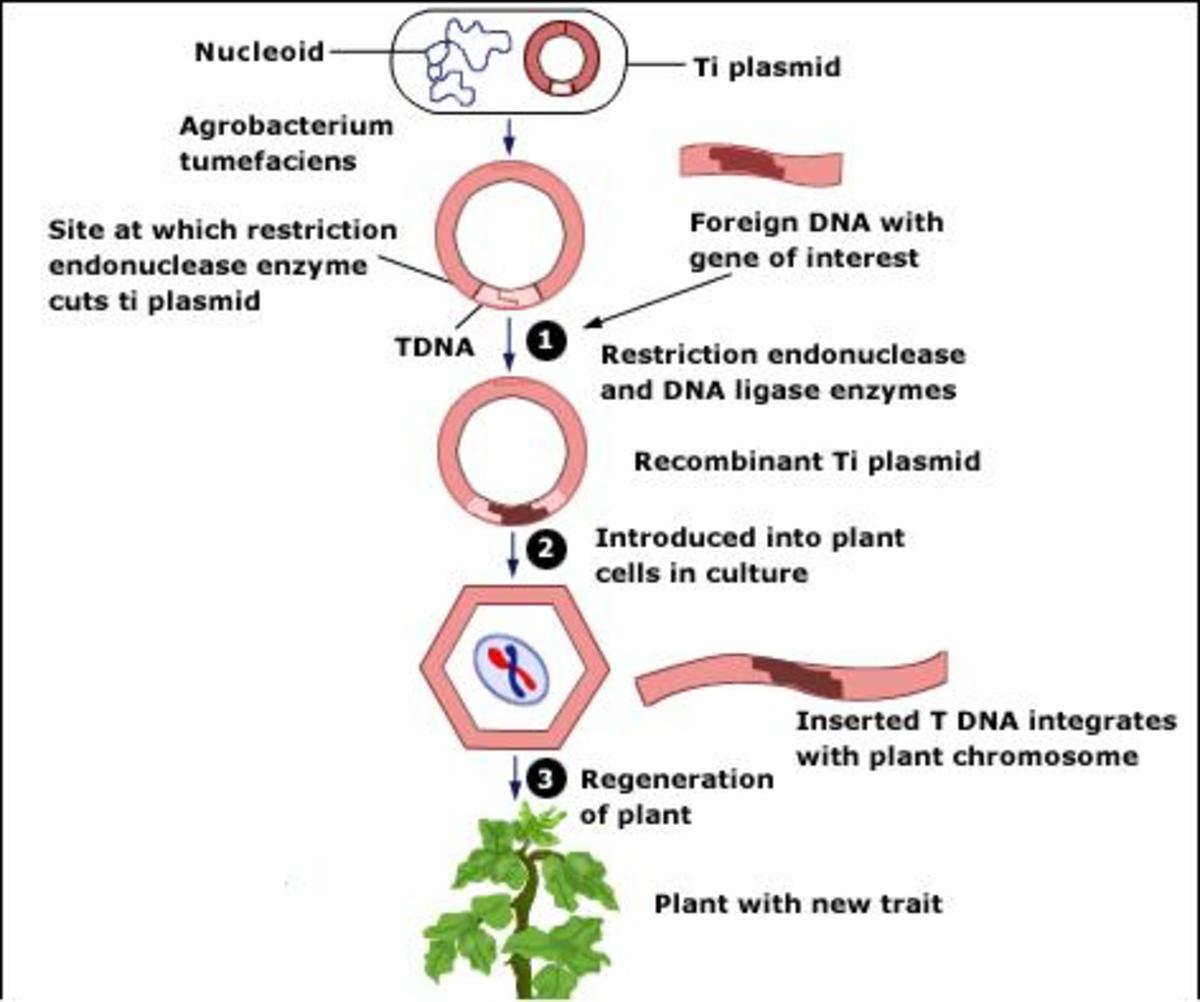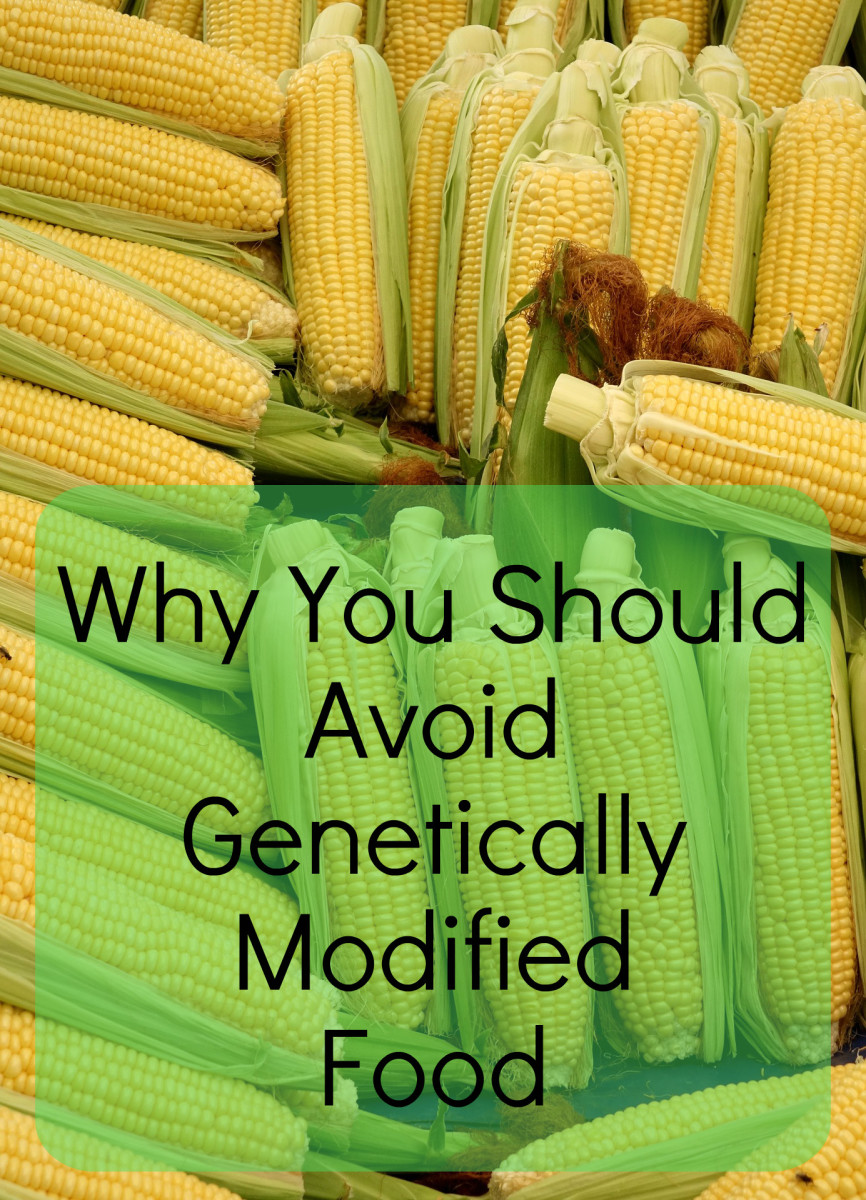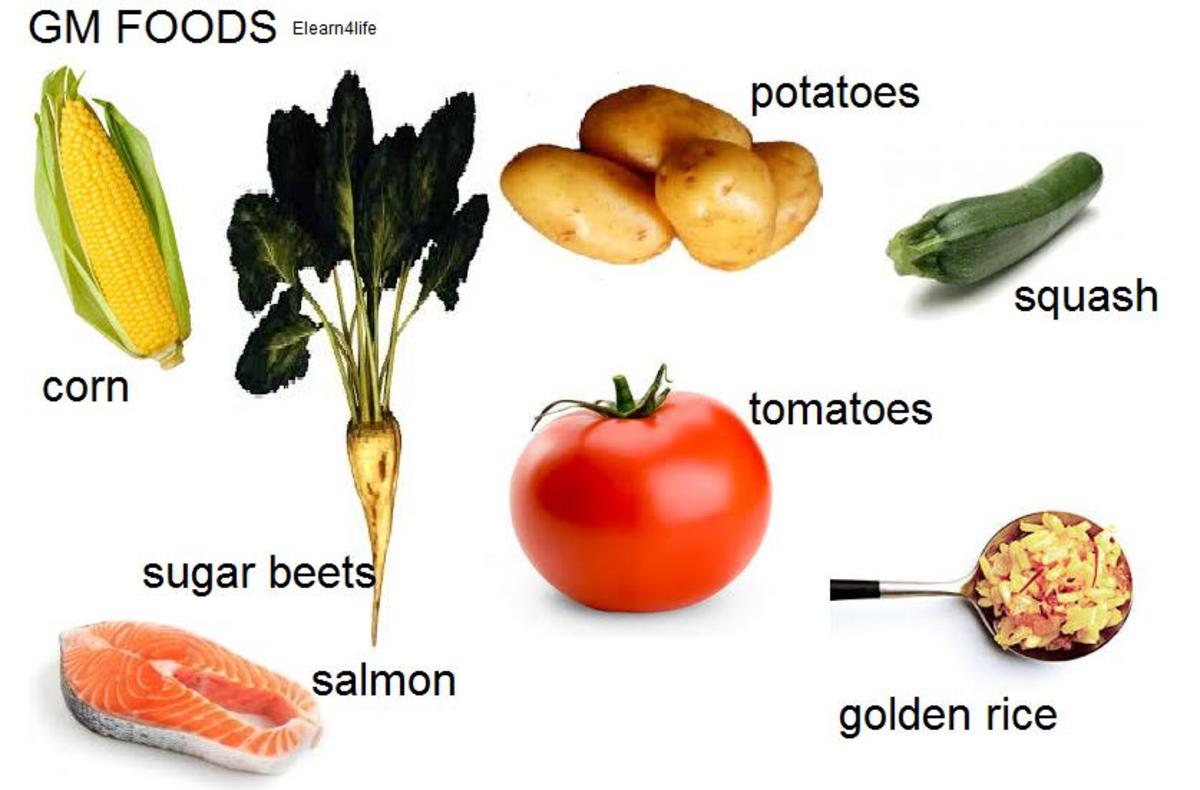Effects of GMOs
Effects of GMOs
Introduction
Genetically engineered foods are typically derived from genetically modified organisms. Through engineering approaches, genetically modified foods have their genetic composition altered. The chief techniques that are employed in the modification of the foods include somaclonal variation, plant as well as animal breeding. The majority of genetically engineered foods are plant products (Ishii & Araki, 2016). Moreover, this technique is normally employed by scientists in the production of crops that are very prolific as well as resistant to drought and diseases. The paper intends to explain why genetically modified food ideas should be accepted by humanity in a bid to curb world hunger and prevalence diseases.
There has never been any significant study on genetically modified foods in the determination of the safety of these underlying products for the human organism. Thus, any insinuation to the conflicting fact is deemed to be a clean fabrication. Numerous scientist organizations worldwide possess diverse opinions regarding these foods. In the previous three decades, the worldwide demand for food has escalated with the ever-growing populations globally (Tao et al., 2016). In the pursuit to ensure that there is sufficient food to feed the entire planet, scientists have discovered environment-friendly means about the food products such as modification of the DNA and consequently producing crops that are relatively stronger and more resistant to the underlying diseases (Ishii & Araki, 2016). Through this essay, there will be a determination on whether the genetically modified foods are gradual poison killing humanity or a solution for the underlying world's hunger
Advancing traits of crops
Genetically modified crops have aided in advancing the traits of crops through manipulation of the underlying genetic composition of the crops possessing detrimental traits, while the appropriate traits are sustained within food via genetic engineering. Due to the population crises experienced by the planet, with a population approximated to be nine billion by the year 2050, and there exist expectation of escalating strains in terms of water, energy as well as food supplies (Scott, Inbar & Rozin, 2016). Thus, it is impossible to disregard the relatively greater fortune presented to the humankind by the scientists. Moreover, it is erroneous to envisage that any solution could work at the expense of genetically modified food.
Shortage of food
The tenacity of the concern about the food shortage on the planet is predominantly assigned to the scientists who develop genetically engineered food. Scientists undertake modification of food in a bid to create a myriad opportunity of making diverse crops that are compatible with diverse ecological zones as well as to spare such crops from harm by the insects. This is deemed to be a positive step towards in regards to restoring food security being that genetically modified food is extremely productive, hygienic as well as pest-free. For instance, the latest strain of wheat developed is capable of emitting a chemical called E-beta-farnesene, which is normally produced by the aphids when their respective lives are at stake (Scott, Inbar & Rozin, 2016). Therefore, it communicates to other aphids that their lives are in danger, and they should flee. Moreover, the chemical substance released by this very strain of wheat is also capable of attracting aphid predators and thus serves as an effective technique of preventing this same strain from insects. Application of the knowledge of genetically modified food within the field of agriculture has enabled the saving of the plants from irreversible harm resulting from the pests (Tao et al., 2016).
Controlling farm runoff
Genetically modified foods are also capable of controlling farm runoff. Chemicals that are utilized in undertaking agriculture could result in pollution of water and soil within the agricultural land. And with the introduction of the genetically modified food, there would be minimal cases about the application of chemicals within the farm (Tao et al., 2016). Thus, this approach is deemed to be an environmentally friendly means of handling the environment since the soil is not typically made contaminated by insecticides and herbicides. Moreover, these foods also aid in the reduction of the chances of the allergic reactions that are caused by certain foods.
High quality of nutrient content of crops
A fascinating argument can be utilized to comprehend the significance as well as essentials of the genetics research within food production. Genetic research in food production is deemed to be the hallmark of difference in terms of food security that is seen in both developed and under-developed nations. The developed nations experience a serene duration of food security due to the massive venture within the new technological invention (Ishii & Araki, 2016). Moreover, the second generation of the underlying genetically modified crops has highly exceptional properties making them possess elevated quality in terms of the nutrient content.
Loss of biodiversity
Conversely, genetically modified foods have lately faced criticism. Therefore, it is imperative to inform consumers about the probable shortcomings of utilizing a particular product. Alteration of the plants' traits by scientists has extensive impacts on the ecosystem. Moreover, modification of a genetic component of any plant might make it toxic to the insect since they utilize a given plant as the chief source of food. Thus, there exist potent fear that prolonged utilization of the insect-resistant genes within the crops is probable to make the insects encounter certain kind of adaptation making them resistant to these underlying genetic modifications (Scott, Inbar & Rozin, 2016). Ultimately, this might result in the massive loss of the fundamental biodiversity thereby leading to the widespread extinction of crops as well as animals.
Cause cancer
Genetically modified technology is deemed to have suffered due to the accidental harm to supplementary living organisms, thus, the safety of utilizing these foods has been warned by scientists. Moreover, it has been claimed that genetically modified ingredients possess the potential of instigating cancer. According to McFadden and Lusk (2015), food, as well as water that is contained within the genetically modified foods, could swiftly escalate the development of malignant tumors when humans get in contact with them. The adverse impacts of the immune system remain after the utilization of genetically engineered food. Past studies have also depicted that the immune reactions are capable of altering the blood cells that are significant in the protection of humans from any diseases.
Increases dependency of third world nations
The emergence of genetically modified food is also seen as a way that typically fosters dependency of third world nations on the developed nations such as in the case of the golden rice developed possessing an elevated portion of vitamin A, which is tremendously valuable to the poor individuals within developing nations. The majority of the poor nations lack sufficient capital to import and grow such commodities.
Decision
Despite these underlying criticisms, the merits of genetically modified foods massively surpass their respective limitations, particularly considering that certain limitations do not possess a foundation on the recognized facts. Thus, it is essential to appreciate the exceedingly nutritious, disease resilient as well as extraordinarily productive foods that typically play a significant role in fighting food scarcity currently. The development and utilization of genetically modified foods ought to be enhanced in a bid to ensure food security worldwide.
Conclusion
It is undeniable that genetically modified foods are a very valued undertaking, particularly in supporting the economy of myriad nations. Through elimination, each rational thinking person would prefer to perish of the impacts of utilizing genetically modified foods at the expense of lacking food to feed on at all. Thus, individuals ought to view these foods within open minds, particularly with the gaps filled by these very foods. Regarding the criticism of the genetic foods containing poison ought to be dismissed by the individuals with the noble idea of salvaging the universe from the impending serious food crisis. The extent which genetically modified foods aids in preserving the environment is desired than the corresponding ordinary crops.
References
Ishii, T., & Araki, M. (2016). Consumer acceptance of food crops developed by genome editing. Plant cell reports, 35(7), 1507-1518.
McFadden, B. R., & Lusk, J. L. (2015). Cognitive biases in the assimilation of scientific information on global warming and genetically modified food. Food Policy, 54, 35-43.
Scott, S. E., Inbar, Y., & Rozin, P. (2016). Evidence for absolute moral opposition to genetically modified food in the United States. Perspectives on Psychological Science, 11(3), 315-324.
Tao, C., Zhang, Q., Feng, N., Shi, D., & Liu, B. (2016). Development of a colloidal gold immunochromatographic strip assay for simple and fast detection of human α-lactalbumin in genetically modified cow milk. Journal of dairy science, 99(3), 1773-1779.
This content is for informational purposes only and does not substitute for formal and individualized diagnosis, prognosis, treatment, prescription, and/or dietary advice from a licensed medical professional. Do not stop or alter your current course of treatment. If pregnant or nursing, consult with a qualified provider on an individual basis. Seek immediate help if you are experiencing a medical emergency.
© 2020 Michael Omolo








